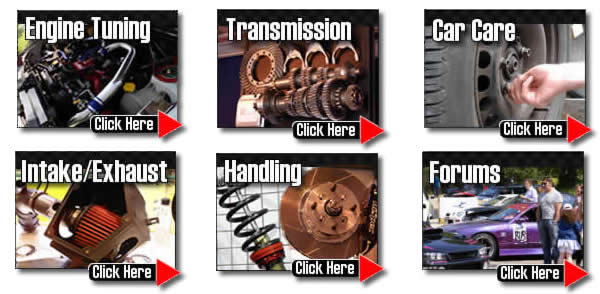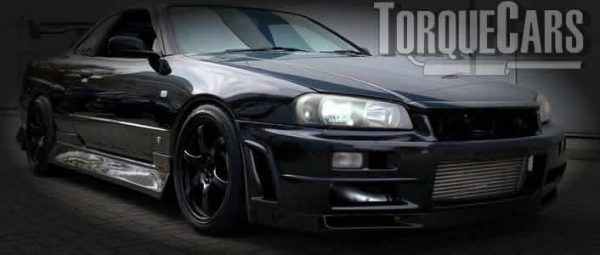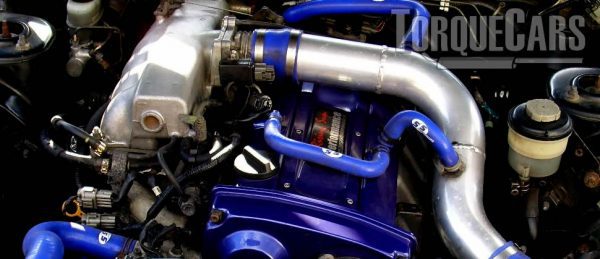Tuning the Nissan Skyline R34
"Tuning guide to the best Nissan Skyline R34 modifications."
The Skyline R34 is a brilliant project car to fill your spare time. We see car owners wasting money on their Skyline R34 doing the wrong mods and then having to start over. Follow our tips to avoid ruining your car.
There are probably as many opinions on the best mods for the R34 as there are R34's so hopefully we can cut through the chatter and noise and present a good common sense guide to getting the best from your R34.
We shall review Skyline R34 tuning and outline the optimum upgrades.
Nissan Skyline R34 are fantastic to work on and with carefully chosen tuning parts like remaps, turbo kits and camshafts you will substantially enhance your driving fun.

Handling/Suspension upgrades
Improving the handling for people often first priority in your Skyline R34 tuning project.
Adding some negative camber at the front and a degree or two of toe in to improve stability or toe out for better cornering, will dramatically enhance your Skyline R34 in handling and cornering.
Drop the car by as much as 28mm - 41 mm. and fit motorsport grade stiffer dampers, bigger drops will need other modifications in most instances.
Don't just look at the peak power figures, you need to see the whole torque curve when determining if a mod is right for you Skyline R34.
Smaller engines do not provide much of a return in terms of power so start with a bigger engine. Engine swaps are a good option if you have a small engine size.
Engine tuning mods.
This list of the stages and modified parts are usually installed by our members, decide how far you wish to go in your tuning project before you start.
- GT – 2.0 L RB20DE NEO I6, 155 PS (114 kW; 153 hp), 186 N⋅m (137 lb⋅ft)
- 25GT 2.5 L RB25DENEO I6, 200 PS (147 kW; 197 hp), 255 N⋅m (188 lb⋅ft)
- 25GT-X 2.5 L RB25DE NEO I6, 200 PS (147 kW; 197 hp), 255 N⋅m (188 lb⋅ft)
- 25GT-V 2.5 L RB25DE NEO I6, 200 PS (147 kW; 197 hp), 255 N⋅m (188 lb⋅ft)
- 25GT FOUR – 2.5 L RB25DE NEO I6, 200 PS (147 kW; 197 hp), 255 N⋅m (188 lb⋅ft) 4WD
- 25GT-X FOUR – 2.5 L RB25DE NEO I6, 200 PS (147 kW; 197 hp), 255 N⋅m (188 lb⋅ft) 4WD
- 25GT Turbo – 2.5 L RB25DET NEO turbo I6, 280 hp (209 kW; 284 PS), 343 N⋅m (253 lb⋅ft)
- 25GT-X Turbo – 2.5 L RB25DET NEO turbo I6, 280 hp (209 kW; 284 PS), 343 N⋅m (253 lb⋅ft)
Nur Spec models have forged pistons and are considered the ultimate Skyline for tuning up.

N1's are basically the pure racing versions, and the Nür-models basically inherited their engines. This means uprated oil pump, water pump, engine block, pistons, conrods, crankshaft and turbochargers.
The N1 engines are basically more efficient and reliable than the regular engines, but they can take about the same power - except the turbochargers (which have steel internals instead of ceramic) and the block itself.
The Nür ones are the ones usually considered the most desirable since they have better spec in standard version and they were manufactured in limited series (750 examples of V-spec II Nür and 250 examples of M-spec Nür).
Getting the best performance parts for your planned usage of the car is a time and money saver. Stage 3 competition upgrades just won't work well on the road making the car difficult to drive.
Please watch our introduction Video tutorial to car tuning. Be sure to subscribe and support our new channel.
How to tune your car
- Improve the handling
Focus on Suspension improvements, such as coilovers and make sure the bushings are in good order and that the alignment is correct. Then focus on improving the brakes, with a big disk brake conversion kit and fast road brake pads.
- Remove restrictions
Focus on the intake and exhaust with filters being the common point of restriction in a tuned car. Intercoolers may also become restrictive on turbo engines so this may also need to be uprated.
- Burn more fuel & air
Increase the fuelling so it matches the air coming into the engine. The ratio is important so you need to improve the fuel pump and injectors, so the head mods, big valve conversions, fast road camshafts and forced induction upgrades extra supply of air is adequately met.
- Test and replace any weak parts
Weak areas are commonly the clutch, the turbocharger and pistons and crankshaft in a highly tuned engine. Makes sure these components will cope with your power aspirations.
- The Tune or Remap
A cars ECU controls the fuel, timing, spark and even the turbo in some cases, so to fully extract your gains you should remap the car last and this will fully release the power. Some cars are easy to map, and others require piggyback ECU's or aftermarket ECU's but this is the most vital step of your tuning project.
Modifying to Stage 1:
Alloy wheels, Suspension upgrade (drop 28mm - 41 mm.), Remap, Panel air filter, Sports exhaust, Lighter flywheel.
Modifying to Stage 2:
Ported and polished head, Power/Sport clutch, Fast road cam, high flow fuel injector, fuel pump upgrades.
Modifying to Stage 3:
Internal engine upgrades (pistons/head/valves), Competition cam, Sports gearbox, Engine balancing, Adding or upgrading forced induction (turbo/supercharger).

Peak power is all well and good but for a daily driven car you need a wide torque band and perhaps extending the rev range.
The point of our hints is to give a brief overview of car tuning modifications and point you in the right direction, our forum is the place to go for detailed advice and tips on your customized car project, the best tuning upgrades and all aspects of modding cars.Fast road cams offer one of the biggest bhp gains for your money as far as a single uprated mods goes on a NASP engine.
THE MOST VITAL THING IS TO GET YOUR MAPPING SPOT ON!
We suggest you go for the Link G4+ (or a G4 with an external knock control unit) or the better but more expensive Syvecs ECU
It maximises the intake and exhaust flow and increases the power if done right. Ideally you'd add other mods and finish up with a reflashed ECU. We'd also caution you not to go with a motor sports profile cam as this affects the engines idling and general town driving characteristics.
When pushing up the power you will need to increase to the fuelling. More power needs more fuel.
If you find you experience flat spots and surges after your tuning kits you should check the fuelling and try a higher octane fuel as well. To get sufficient fuel you may need to increase the injectors on your engine.
Uprate the fuel pump to cope with the extra fuel requirements of your tuned Skyline R34's uprated injectors.
Intake and Exhaust Tuning.
Breathing mods are usually next up. Please note that WE DO NOT FIND IMPROVEMENTS WITH INDUCTION KITS, unless you have tuned your car extensively and are finding that the standard air intake has become the bottleneck.
Induction kits can work well on turbo engines and larger engines (if supplied with a suitable cold air feed or air box), generally though we'd just recommend for Skyline R34 NASP engines you should just fit a performance panel air filter preferably made from cotton.
Do not go with the largest exhaust you can buy this will slow up the exhaust flow rate - the best for power gains are usually between 1.5 to 2.5 inches. It is the shape and material more than the bore size.
Getting the cylinder head gas flowed will allow you to get more air into each cylinder. This is definitely a job for a pro with a flow bench. When you tune up your Skyline R34 you will find that the standard clutch starts to complain so get an uprated clutch. The best mods we would do for your Skyline R34 are remaps, sports camshafts and induction improvements.
NASP engines do not achieve big power gains if you remap them, unless you have done extensive modifications. With turbocharged engines this is another story. A remapped turbo will give large power gains and take full advantage of the strength of the block.
A big single turbo conversions are worth doing as an upgrade on all RB26's in our opinion, the designs are quite modern and you get good low down power and massive top end potential.
The most significant power gains for NASP engines usually involve the addition of forced induction. It is usually cheaper to add a supercharger than it is to get a turbo working. It is difficult to map fuelling with a turbo as the boost builds exponentially with revs.
Currently (2017) the choice turbo for an RB26 is a Borg Warner EFR. The way the RB26 engine fires makes a twin scroll turbo intake a solid bet for upgraders.
The nice correlating boost and rpm characteristics of the supercharger make them simpler to map. Alternatively you could perhaps add water injection to reduce the risk of knock.
400-650 bhp
Going over 400 bhp requires some serious turbo upgrades.
The GT2530 was a popular option for large power gains but we recommend the newer and better twin scroll Borg Warner EFR 8174 or the larger EFR 8374 (good for 500-800bhp).
600-900 bhp
For a little bit more power you could specify a HKS T04Z, or T88-34D turbo or preferably the Borg Warner twin scroll EFR 9180, fit a stroker kit which will take the RB26 to 2.8 litres and matched to a suitable flowed and ported cylinder head and forged internals will take power levels up to around 800bhp safely.
Add in a high performance fuel rail, some 1000cc injectors and the EFR8374, GT2860-5 or GT2871R turbo with a good fuel pump (you should spec for around 280 litres per hour for this.)
RB30 is the next step for a large power project car.
RB26 DETT weak spots.
The weak spots, the oil pump was prone to fail under heavy load causing oil starvation. When you need oil more than at any other time this can cause significant damage to an engine.
The later N1 was fitted with an uprated oil pump which avoids this problem but there are better aftermarket oil pumps around from Tomei, Jun and Greddy.
Ignition coils can fail, evident as a misfire or flat spot. Replace these with higher spec parts should they start to fail.
Alloy wheel upgrades.
Because alloys are less heavy they improve performance and they will help to cool the brake disks. We can't go into too much detail here about tires but they are how the car puts the power down on the road so are a critical choice. soft compound tires work well on Skyline R34, and make a big difference over budget tires. Large Skyline R34 alloys can decrease performance. If you get big alloys you will be changing your final drive ratio.
Although some people have gone larger than this without problems we would restrict ourselves to a 16 inch rim size as the maximum.
For more information on Tuning your car please join us in our friendly forum where you can discuss Skyline R34 options in more detail with our Skyline R34 owners. It would also be worth reading our unbiased Nissan tuning articles to get a full grasp of the benefits and drawbacks of each modification.
Please help us improve these tips by sending us your feedback in the comments box below.
We love to hear what our visitors have got up to and which mods work best for them on each model of car. Comments are used to improve the accuracy of these articles which are continually updated.
If you liked this page please share it with your friends, drop a link to it in your favourite forum or use the bookmarking options to save it to your social media profile.
Check out TorqueCars new YouTube channel, and see their awesome new content...
Feedback
Please use our forums if you wish to ask a tuning question, and please note we do not sell parts or services, we are just an online magazine.
Help us improve, leave a suggestion or tip
